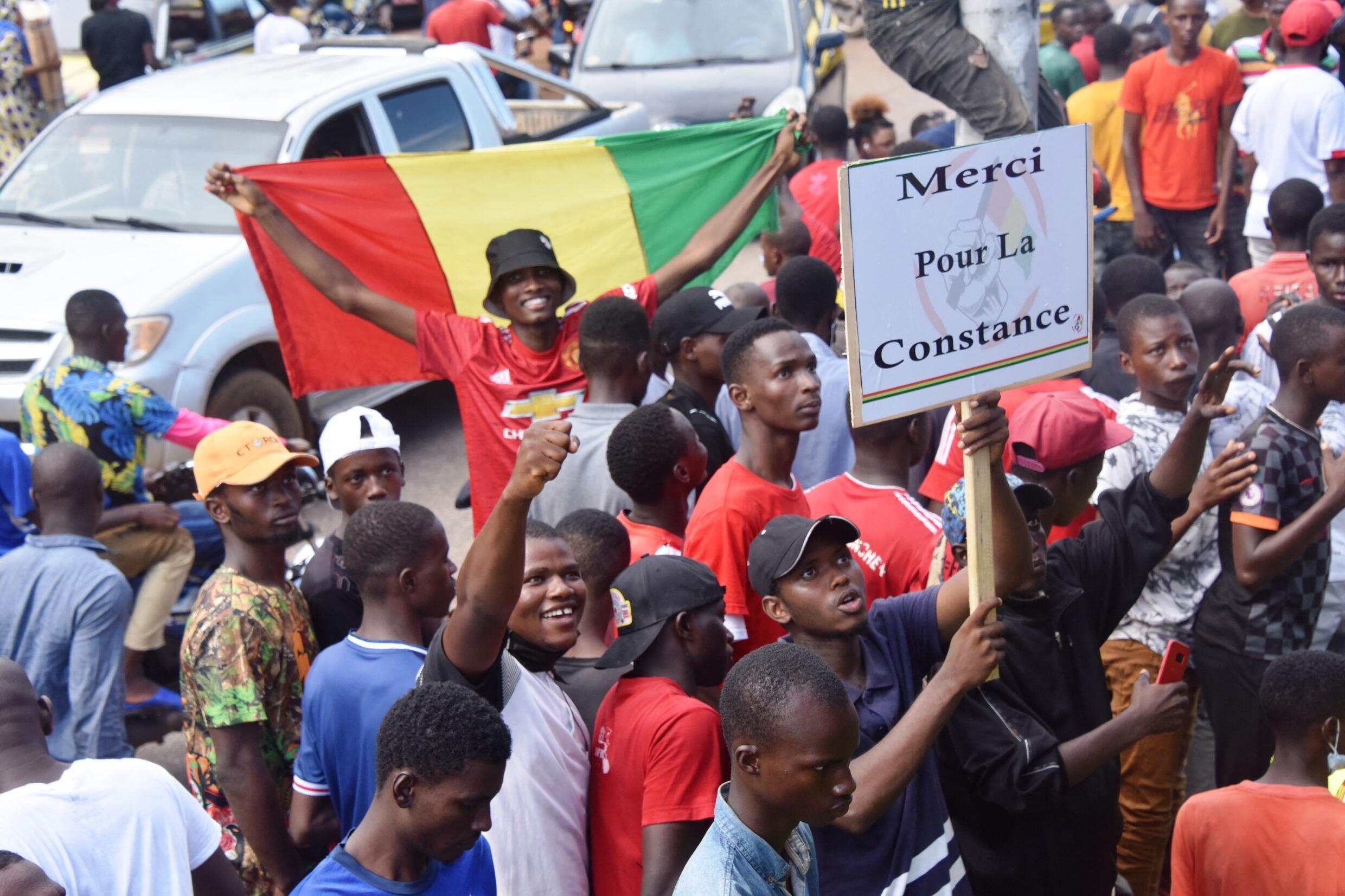First modification:
The National Front for the Defense of the Constitution (FNDC), which denounces the “unilateral management of the transition” by the Junta, was dissolved by a government order authenticated by the AFP news agency on Tuesday. This decision occurs when the group was preparing a new demonstration.
The National Front for the Defense of the Constitution (FNDC), an important group that has been opposing the ruling junta in Guinea for several months and that had led the protest against former president Alpha Condé (2010-2021), has been dissolved by a government order authenticated on Tuesday, August 9 by the AFP news agency.
“This decree (…) comes into force from the date of its signature” on Saturday, says the document signed by Mory Condé, Minister of Territorial Administration and Decentralization.
The announcement of the dissolution had been leaked on social networks on Monday night after a new call for demonstrations by the FNDC on August 17 throughout Guinea to denounce the “unilateral management of the transition” by the junta, as well as the absence of “credible dialogue” between the board, the political parties and civil society.
The FNDC, a coalition of parties, unions and civil society organizations, initiated the demonstrations on July 28 and 29, which were banned by the authorities and in which five people died.
“His modus operandi is structured in violent actions during prohibited demonstrations, attacks on individuals who do not share his ideology and selective actions against law enforcement,” the government said in the order. “This group in fact (…) provokes armed demonstrations on the roads and public places, having the actions of a fighting group and private militias.”
This group “endangers national unity, public peace and coexistence, and is not on the list of NGOs in Guinea, nor on the list of associative groups (…) and even less so in the directory of NGOs approved in the Republic of Guinea,” added Mory Condé.
A blow to freedom
“We don’t comment on the minister’s order, we don’t feel concerned,” Abdoulaye Oumou Sow, head of communication for the collective, told AFP.
Cellou Dalein Diallo, the main Guinean opponent of former President Alpha Condé, condemned the decision, saying it was “a blow to freedom, justice, democracy and peace” on social media.
“The Guinean Organization for the Defense of Human and Citizen Rights (OGDH) reacted by saying that it was “very concerned” about “the turn of events” and that “we believe that the confiscation of citizens’ freedoms and the silencing of all dissenting voices will only complicate the situation”.

Two of the FNDC leaders, Oumar Sylla alias Foniké Mangué and Ibrahima Diallo, have been detained since the last demonstrations in the Conakry civil prison after being accused of “participating in a prohibited meeting, looting, destruction of public and private property, assault and injuries”.
lack of dialogue
The collective had suspended its protest movements for a week, including the one planned throughout the country on August 4, “at the express request” of the head of state of Guinea-Bissau, Umaro Sissoco Embalo, current president of the Economic Community of States. of West Africa (ECOWAS).
The truce had “the sole purpose of giving ECOWAS mediation an opportunity to find a favorable solution to the crisis in Guinea,” the FNDC had said.
Colonel Mamady Doumbouya, who ousted Alpha Condé, in power since 2010, on September 5, has promised to hand over power to elected civilians within three years.
On August 1, ECOWAS called on “the Guinean authorities, the political class and civil society to engage in an inclusive dialogue in order to reduce tension and agree on a timetable and reasonable modalities for the peaceful restoration of the constitutional order”.

But the military junta refuses “to respond to the numerous calls for dialogue on the transition,” the FNDC denounced on Monday in a statement in which it also criticized “the attitude of chronic defiance” of the Guinean government towards ECOWAS, its ” unilateral and authoritarian management of the transition” and “the illegal use of lethal weapons in the management of demonstrations”.
In addition to opening a “credible dialogue” with political actors and civil society and setting a reasonable and agreed term for the duration of the transition, the FNDC demands that the junta unconditionally release all its activists detained during the last demonstrations.
*With AFP; adapted from its original French version


